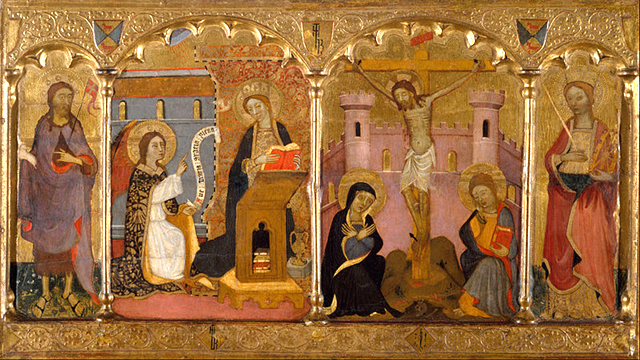 Three Weeks and Counting: Still Broken
Three Weeks and Counting: Still Broken
Isaiah 7:10-16 • Psalm 80:1-7
This is the fourth object lesson based primarily on the Isaiah readings for Advent Lectionary Year A.
For the last three weeks we have been pondering the great event that is about to be remembered by the world once again. In just two days the Saviour will come at last.
Have things been getting steadily better for us during these four weeks? Not necessarily.
On this last Sunday before Christmas Eve, we read from Isaiah and Psalm 80 and we hear about our brokenness.
Both the psalmist and Isaiah reference an exasperated God—a weary God.
“All right, you guys. If you are just too stubborn or helpless to get the messages of the last three weeks or last few decades, listen up. Listen and listen good. I am sending a baby. And by the time this baby starts eating solid food, things are going to change around here.”
For all the prophesying that had been taking place in Israel and for all the preaching that has been taking place here, we arrive at the threshold of Christmas as broken children of God.
Your object today is something that is broken. It could be a broken record, a broken piece of pottery or a broken toy. Set out to do some mending as you talk about today’s lesson. Try some tape or duct tape, move on to white paste or school glue. Express your frustration as you work at mending things. Then pull out the Krazy Glue.
Speaking of crazy fixes — here’s how God intends to fix our brokenness. He is going to send a baby. He will be born of woman, just like any other baby, but He will be a sign that things are about to change.
As you come to Isaiah’s unlikely solution for the problems his audience faced, walk over to your congregation’s crèche scene. If you don’t have one, have at hand just the manger and the baby or even just the baby. Put all the glues away. You might have a child hold the baby Jesus while you put away the glues and broken object.
Then focus all attention on the baby.
Point out the brokenness that we all face—and with which the baby will contend from the time he can eat solid food!
You don’t have to say much more at this point. Just read verse 13-14 from Isaiah Chapter 7.
Is it too little for you to weary mortals, that you weary my God also?
Therefore, the Lord God will give you a sign. Look, the young woman is with child and shall bear a son, and shall name him Immanuel.
Remind them that the people hearing this message from the lips of Isaiah would have known the meaning of Immanuel.
God is coming to be with us.
Invite them to return on Christmas Eve or Christmas Day to find the babe wrapped in swaddling clothes and lying in a manger.
You might lead the congregation in an a capella rendition of “Let All Mortal Flesh Keep Silence.” It captures both the hope and desperation of the Advent season.
Let all mortal flesh keep silence,
and with fear and trembling stand;
ponder nothing earthly-minded,
for with blessing in his hand,
Christ our God to earth descendeth,
our full homage to demand.
King of kings, yet born of Mary,
as of old on earth he stood,
Lord of lords, in human vesture,
in the body and the blood;
he will give to all the faithful
his own self for heavenly food.
Rank on rank the host of heaven
spreads its vanguard on the way,
as the Light of light descendeth
from the realms of endless day,
that the powers of hell may vanish
as the darkness clears away.
At his feet the six-winged seraph,
cherubim, with sleepless eye,
veil their faces to the presence,
as with ceaseless voice they cry:
Alleluia, Alleluia,
Alleluia, Lord Most High!
Here are the other three Advent lessons based on Lectionary A’s Isaiah readings.

